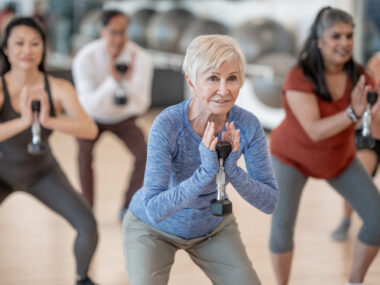The Heat Is On: Coping With PPMS and High Temperatures
Summer brings discomfort, even a shutdown, for those with multiple sclerosis
Written by |

Oh, brother, it’s hot! How hot? Well, my thermometer hit “are you kidding me” levels. My experience with primary progressive multiple sclerosis (PPMS) has taught me that an 0.5-degree rise in body temperature is enough to cause a shutdown. Allow me to explain what it’s like when my body shuts down.
When I started my farming business, the heat was a factor, but never a problem. To deal with hot temperatures during the late spring and summer months, I wore a straw cowboy hat, a light T-shirt, shorts, and work boots. I also made sure plenty of water was around to keep hydrated, whether it was drinking water, hosing myself down, or jumping in the above-ground pool at the farm. Other than feeling it when temperatures rose above 90 degrees, I never struggled with the heat.
Since my diagnosis, I last about 15 minutes in heat before I start to lose control. I struggle to breathe, experience loss of balance, and have tremendous weakness in my legs and lower back. As the time in this environment extends, the symptoms get worse. My body doesn’t cool off, I become drenched in sweat, my eyes sting, and my hands start tingling.
This is also when I experience the psychological effects of my physical decline. I know I have to get out of this environment, but I have to finish the task I’m working on. So my temper becomes short, and I’m arrogant, belligerent, and nasty. Getting out of the extreme heat is the only solution. I must cool off.
Short-term cooling works to stop the advancement of the shutdown. Things like ice packs, cooling towels, soaking myself with a hose, and resting in the shade are all temporary solutions. The only long-term solutions are a cool shower, air conditioning, and sleep. The stress of this event tends to wipe me out both physically and emotionally. I need at least three hours to reboot.
I can’t imagine having to deal with PPMS without central air or some sort of air conditioning. From my time as a small boy to my 50s, I never had air conditioning in the house. I never needed it. Then the year of my diagnosis, we decided to have it installed. It became a lifesaver.
Without this simple adaptation, I would have no long-term solution during intense heat situations.
Note: Multiple Sclerosis News Today is strictly a news and information website about the disease. It does not provide medical advice, diagnosis, or treatment. This content is not intended to be a substitute for professional medical advice, diagnosis, or treatment. Always seek the advice of your physician or other qualified health provider with any questions you may have regarding a medical condition. Never disregard professional medical advice or delay in seeking it because of something you have read on this website. The opinions expressed in this column are not those of Multiple Sclerosis News Today or its parent company, Bionews, and are intended to spark discussion about issues pertaining to multiple sclerosis.




Jeff Banks
Good read Stephen thanks. I also have ppms and air conditioning too....a real lifesaver in no uncertain terms ! I tell friends and family that it really helps with my ms but sometimes I am sure that they think I am pulling their legs lol. Also I find that extreme cold (like when the furnace dies in Jan) affects me more than it normally would. From all the articles on ms that I have read over the years it sure is apparent that we all have our individual differences and also similarities, thus the name "snowflake disease".
Stephen De Marzo
The name of my column is "Goldilochs" because as my wife says "everything has to be JUST right"! Like the Lochness monster! "Loch". LOL! Be well!
Donald Wayne Dony
Hi Stephen,
I am 70 now and have had PPMS for 10 years. What has been a life changer for me is Stem cells. Ocrevus only stabilizes the MS at best, the stem cells dramatically improve my everyday life. Let me know if you want more information.
Harold McAlpine
I would like more information what stem cell treatment you had and where. What it entailed and how often.
I look forward to the information. Thank you
[email protected]
Mike Lanier
Donald, I am a 58 yr. old male with SPMS diagnosed 5 years ago. Last treatment tried (after too many to list) was Ocrevus which had no effect. Moving to Florida and would like to know what specific type of stem cell treatment you have experienced so that I may be able to get on some type of dmt plan. Hoping something or someone can help me since I am a disabled shut-in at this point. Trying to be strong and prayers to everyone here. Thank you!
mary oemcke
i m 67 years old w/ ppms and get around nicely with a 3 wheeled walker. Although Ocreveus has been very effective for the past 10 years in stabilizing progression, I am just recently more unstable and dizzy. I would greatly appreciate stem cell treatment information. : )
Jan Beko-Nathan
I agree, summer sucks for the most part; I tend to line up all the Christmas projects I am going to give as gifts and enjoy my summer in the air conditioning! Until this year, when our economic recession and extreme price increases have made that a daily what-if... Bring on fall!!
Helen
Thank you Stephen for your article “ The Heat is On: Coping with PPMS and High Temperatures”. I have RRMS - diagnosed summer of 2017 - you succinctly and accurately described how it feels and the aftermath (even for those of us with Relapsing-Remitting) when it gets hot outside, but the “tasks” still need to be accomplished. Unfortunately, some of my siblings (I have 5 brothers & sisters) don’t realize the impact or complications of MS.
Gloria Seiler
I have been on an infectible (Copaxone) for 20 years and Medicare does not cover injectables except for Insulin). The out-of-pocket monthly expense is approximately $1,200.00. I have been forced to retain my former employer's BCBS for approximately $700.00/month. That is an unfair decision for Medicare to make.
Colleen Seymour
Gloria,
Copaxone has a copay program. Contact Copaxone.com and find out about their plan. You should pay nothing. I also use Copaxone.
Contact them. Good luck. Colleen
JoEllen Hoelting
You described it exactly. Thanks. Hope I can print your article to share with others.
Stephen De Marzo
If you can't I will send it to you!
Olivier Fouques
Same thing for me here.
I live in the Sacramento area and from mid June to mid September, during the day the temperature is between 85 for the coolest all the way to 115 for the warmer.
Beside going to the pool, the only way to deal with it is to stay inside with the AC on, I can fonction almost like a normal guy then.
Donna Petit
I have been a pile of cooked pasta since May. I am lucky that I live in central New York and I haven’t had to live through the extreme heat that some areas have. I’ve been dealing with PPMS for 26 years and I’ve been in a wheelchair for the last eight. Staying in the a/c or our pool are the only ways I can move and even lose my cog fog. I find that when the barometer changes my body is affected and my trigeminal neurologia rears it’s ugly head!
Terry Gordon
This summer has been terrible in Austin, TX. We have had a record number of 100 degree days. I only go outside for short periods of time (like less that 10 minutes). If I overdo it, I am exhausted for the rest of the day. I do my walking PT by walking around in my house, boring. Sometimes I will go to a mall. I am determined to not be a couch potato.
tyrone loukas
Your insights shed light on practical strategies and considerations for managing this aspect of daily life, offering valuable guidance and support to those navigating similar circumstances. Your thoughtful approach and understanding are deeply appreciated, providing a sense of solidarity and empowerment to individuals facing this unique challenge. Gratitude for sharing your expertise and empathy
Madeline Blake
Thank you for sharing your experiences with heat and PPMS. It's eye-opening to read about the challenges you face and the importance of air conditioning in managing your symptoms. Your insights emphasize the need for adaptive solutions to improve quality of life in extreme temperatures. I appreciate your courage in discussing this!
David Grace
Thank you for sharing this helpful resource about coping with PPMS and high temperatures. This information is essential for anyone living with PPMS, as heat sensitivity can significantly impact their daily lives. The article provides valuable tips and strategies for managing heat-related symptoms, such as staying hydrated, avoiding heat exposure during peak hours, and using cooling techniques. By following these recommendations, individuals with PPMS can better manage their condition and maintain their quality of life, even during hot weather.
Clover Rayner
"The Heat Is On: Coping With PPMS and High Temperatures" is a crucial topic that addresses the challenges faced by individuals with PPMS in managing heat sensitivity. Practical tips and strategies can greatly improve comfort and quality of life.